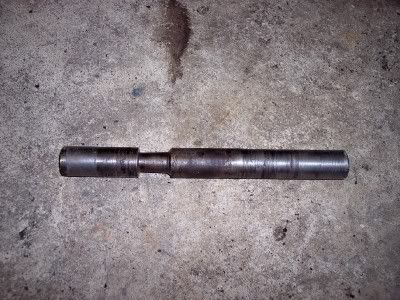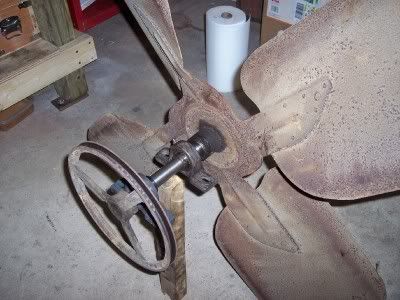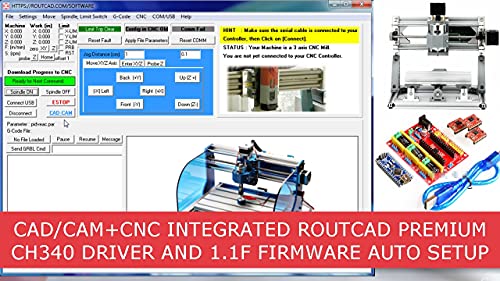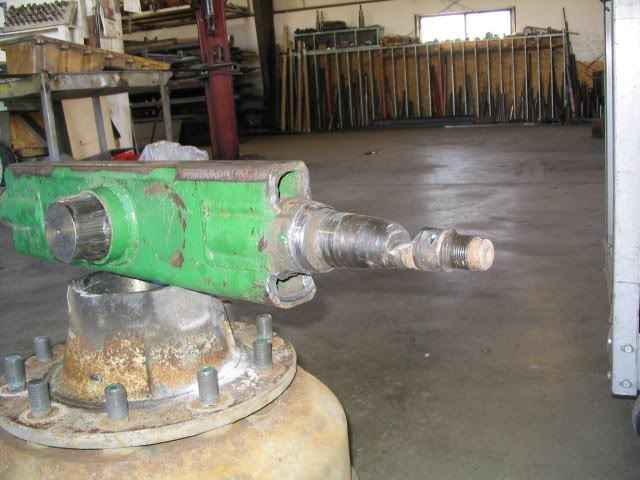rake60
Well-Known Member
- Joined
- Jul 8, 2007
- Messages
- 4,756
- Reaction score
- 125
I live in a small town.
Everyone knows I have a small shop here.
I was asked to stop in at a local greenhouse to take a look at a piece of
equipment that wasn't working properly.
No Problem! By the time I got there the owner was well on his way to
tightening up a few loose bolts on the machine.
Then he points up to the 42" fan near the ceiling and says: "Can you fix that?" :-\
Soooo I climb up to have a look. One of the pillow block bearing is locked up and
shaft is a little sloppy.
No Problem! I learned how to dismantle the fan as I went and brought the fan shaft
assembly home.
When I finally got it apart I realized the shaft was worn a little more than I'd thought.

That ain't right! LOL That is supposed to be .998" for it's entire length.
It only took about an hour to do the turning and mill work on the new shaft and reassemble the fan.
Only smashed one thumb taking the fan off the original shaft.


At any rate I have a happy neighbor and a few extra $$ for the weekend.
It would still be a simpler life if they never knew...
Rick
Everyone knows I have a small shop here.
I was asked to stop in at a local greenhouse to take a look at a piece of
equipment that wasn't working properly.
No Problem! By the time I got there the owner was well on his way to
tightening up a few loose bolts on the machine.
Then he points up to the 42" fan near the ceiling and says: "Can you fix that?" :-\
Soooo I climb up to have a look. One of the pillow block bearing is locked up and
shaft is a little sloppy.
No Problem! I learned how to dismantle the fan as I went and brought the fan shaft
assembly home.
When I finally got it apart I realized the shaft was worn a little more than I'd thought.

That ain't right! LOL That is supposed to be .998" for it's entire length.
It only took about an hour to do the turning and mill work on the new shaft and reassemble the fan.
Only smashed one thumb taking the fan off the original shaft.


At any rate I have a happy neighbor and a few extra $$ for the weekend.
It would still be a simpler life if they never knew...
Rick
































































![DreamPlan Home Design and Landscaping Software Free for Windows [PC Download]](https://m.media-amazon.com/images/I/51kvZH2dVLL._SL500_.jpg)




